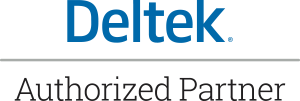How Monograph Accounting Reduces Errors and Saves Time in Your Firm
Wiki Article
Discovering the Trick Functions of Monograph Accounting for Successful Accounting Professionals

Defining Monograph Accountancy: A Comprehensive Summary
Monograph accounting stands for a specialized approach within the wider field of monetary coverage. This technique emphasizes the comprehensive and methodical documents of monetary deals and their ramifications. Unlike traditional accountancy, Monograph accountancy is frequently tailored to details sectors or unique scenarios, offering a focused framework for analysis and coverage. It permits accounting professionals to dig much deeper into specific areas, presenting an extensive view that straightens very closely with organizational goals.A vital attribute of Monograph audit is its adaptability; it can incorporate various accounting criteria and practices as needed. This flexibility allows accountants to produce reports that are not only precise however likewise appropriate to stakeholders. Moreover, the approach commonly includes comprehensive research study and exam of monetary data, ensuring that every aspect is thoroughly recognized and documented. Therefore, Monograph accountancy serves as an important device for accountants intending to provide informative economic assessments tailored to certain contexts.
The Value of Quality and Precision in Financial Reporting

Inaccurate or vague coverage can cause illinformed approaches, wore down trust fund among investors, and governing examination. Therefore, accounting professionals must focus on precision in their job, making certain that figures are carefully verified and monetary narratives are meaningful. This not only fosters transparency but also enhances the total integrity of the company.
Inevitably, clearness and precision in monetary coverage are essential for preserving stakeholder self-confidence and promoting sustainable service growth. Accounting professionals play a critical function in upholding these requirements, making their experience important in navigating the complexities of economic information.
Enhancing Decision-Making Procedures Through Monograph Accountancy
Efficiency in decision-making procedures is substantially enhanced with the concepts of Monograph bookkeeping. By consolidating detailed financial information right into a particular, systematic framework, accountants can promptly access critical details needed for educated choices. This approach minimizes the moment invested on data access and interpretation, enabling for a more dexterous reaction to economic scenarios.Essay audit emphasizes clear categorization and thoughtful company of financial deals, which reduces mistakes and miscommunication. When accounting professionals use these principles, they can offer financial understandings in an organized way, promoting discussions amongst stakeholders.
Furthermore, the standardization inherent in Monograph audit makes it possible for seamless comparisons across different durations or divisions, additionally helping in tactical planning. This streamlined strategy not just maximizes the interior procedures of accounting experts yet also boosts the total organizational dexterity, empowering services to adapt to transforming market problems swiftly.
Key Advantages for Accounting Professionals and Their Clients
While adopting Monograph bookkeeping may require a first financial investment of time and sources, the lasting advantages for both accountants and their clients are substantial. This audit technique promotes enhanced precision and transparency, enabling accountants to preserve clearer financial records. By settling info right into a singular narrative, customers acquire better insights right into their economic health and wellness, facilitating informed decision-making.Essay audit fosters more powerful customer partnerships with enhanced communication. Accountants can present economic data in an extra digestible layout, making it simpler for clients to comprehend complex information. This quality not only constructs trust yet also motivates aggressive economic management
In addition, the structured processes related to Monograph accounting minimize the probability of mistakes, which can save both time and money. Ultimately, the combination of this approach causes extra efficient procedures, making it possible for accounting professionals to offer better service while empowering customers with improved economic understanding and control.
Practical Applications of Monograph Audit in Numerous Industries
In what methods can monograph accountancy transform various markets? By giving a concentrated and comprehensive technique to monetary reporting, Monograph accountancy improves quality and precision across varied industries. In health care, for instance, it promotes the precise monitoring of client expenses and resource allowance, ultimately enhancing economic management. The production market take advantage of its organized analysis of production expenses, permitting for far better rates strategies and success assessments.In the retail industry, Monograph audit helps in stock management and sales forecasting, helping services enhance stock levels and minimize waste. In the nonprofit sector, it helps in transparent reporting of grant financing and resource utilization, promoting count on among stakeholders. On the whole, Monograph audit's tailored methods make it possible for companies to accomplish financial openness and operational efficiency, making it a vital device across various sectors. Its versatility ensures that organizations can meet certain bookkeeping demands while maintaining compliance with guidelines.
Frequently Asked Questions
What Software Is Ideal for Applying Monograph Accountancy?
The most effective software application for carrying out Monograph audit consists of copyright, Xero, and Sage. These systems supply detailed features customized for efficient monitoring, reporting, and monitoring of monetary information, promoting structured accounting processes for experts.Exactly How Does Monograph Bookkeeping Differ From Standard Accounting Approaches?
Monograph bookkeeping concentrates on private tasks Monograph Project Accounting or clients, emphasizing in-depth tracking and reporting for particular entities, while typical audit accumulations information throughout all entities, prioritizing general monetary wellness as opposed to project-specific understandings and performance.What Prevail Challenges Accounting Professionals Face With Monograph Accountancy?
Accountants typically encounter difficulties with Monograph audit, consisting of intricacy in financial reporting, combination with existing systems, making certain compliance with guidelines, adapting to distinct customer needs, and taking care of the comprehensive documentation needed for accurate assessments.
Exist Particular Laws Governing Monograph Bookkeeping Practices?
Yes, certain policies frequently control Monograph accountancy methods, including adherence to nationwide accountancy criteria, compliance with tax laws, and industry-specific standards. Accounting professionals must remain informed to ensure their methods straighten with these established structures.How Can Accountants Stay Updated on Monograph Accounting Trends?
Accounting professionals can remain updated on Monograph audit fads by subscribing to market publications, attending pertinent workshops and seminars, taking part in professional companies, and involving with on-line forums committed to audit criteria and ideal methods. (Monograph Accounting)Monograph audit provides a distinct framework that boosts financial reporting for accounting professionals. Unlike typical accounting, Monograph bookkeeping is usually customized to certain industries or unique situations, offering a concentrated structure for analysis and reporting. A crucial attribute of Monograph audit is its flexibility; it can incorporate various accounting standards and methods as needed. By providing a focused and comprehensive strategy to financial coverage, Monograph accountancy improves quality and precision across diverse sectors. Yes, specific laws frequently regulate Monograph audit methods, consisting of adherence to national audit requirements, conformity with tax obligation guidelines, and industry-specific standards.
Report this wiki page